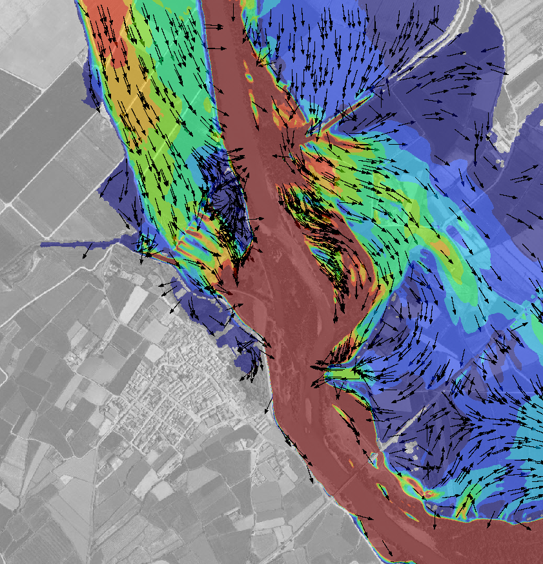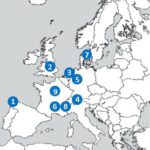
Building Collaborative Urban Drainage Research Labs Communities
The EU’s Urban Drainage Systems (UDS) are essential infrastructure providing safe sanitation and drainage and environmental protection by collecting and then returning securely to the natural water bodies. Many UDS are at risk, their economic life is coming to an end and it is unclear how limited knowledge on their state and processes, population growth, climate emergency, untreated stormwater and public health threats caused by emerging pollutants and pathogens can be addressed, and how knowledge innovation and best practice is effectively shared.
 Innovative approaches are urgently needed to tackle these challenges, and large-scale laboratory facilities are essential to investigate and validate new approaches and provide confidence in their effectiveness and safety before implementation in existing UDS. CO-UDlabs aims to integrate 17 key large scale research facilities at a European scale into an ambitious project aiming to offer the R&D community, water infrastructure operators and their supply chain high quality laboratory and field facilities, human resources, high level training opportunities and improved data sharing platforms in order to meet major UDS related societal, environmental, and economic sustainability challenges of the 21st Century.
Innovative approaches are urgently needed to tackle these challenges, and large-scale laboratory facilities are essential to investigate and validate new approaches and provide confidence in their effectiveness and safety before implementation in existing UDS. CO-UDlabs aims to integrate 17 key large scale research facilities at a European scale into an ambitious project aiming to offer the R&D community, water infrastructure operators and their supply chain high quality laboratory and field facilities, human resources, high level training opportunities and improved data sharing platforms in order to meet major UDS related societal, environmental, and economic sustainability challenges of the 21st Century.
Partners
UDC – University of A Coruña (SP)
UoS – University of Sheffield (UK)
DEL – Stichting Deltares (NL)
EAWAG – Swiss Federal Institute of Aquatic Science and Technology (CH)
IKT – Institute for Underground Infrastructure (D)
INSA-Lyon (FR)
AaU – Aalborg University (DK)
GRAIE (FR)
EURONOVIA (FR)

Facilities UDC (Coordinating Partner)

1:1 Scale street surface model (STREET)
Full scale model of a 36 m2 street section (including buried drainage pipes) for studying rainfall processes, street flooding pollutant runoff and in pipe pollutant transport.
Scientific platform for urban runoff tests (BLOCK)
100 m2 rainfall simulator model with 1:4 scale model of an urban intersection for studying rainfall-runoff and the transport of pollutants on surface and in the drainage network. Controllable rainfall is generated.
Waste water flume facility (BENS FLUME)
Hydraulic wastewater flume (10×10 m length and 0.8 m width flume), variable slope and adjustable downstream boundary condition, can be internally re-configured with pipe sections.
Research Activities
A combination of interconnected Joint Research Activities will allow to improve the understanding of asset deterioration, and secure the long-term resilience and sustainability of urban drainage systems with the help of more robust, autonomous and interconnected smart monitoring techniques, and digital water data analysis tools.
- Co-UDlabs will provide new services to projects users and to the UDS community, such as a catalogue of new technologies, validated methods for system monitoring, and open source tools for reliable and robust data acquisition.
- Co-UDlabs will contribute to network renewal, renovation and repair options intelligently selected to ensure sustainable, high-level performance regarding sanitation and flood safety.
- Co-UDlabs will allow development of standardized methods to measure the hydraulic and water quality performance of UD technologies, to quantify their resilience and recovery, and to improve their long-term sustainability.

